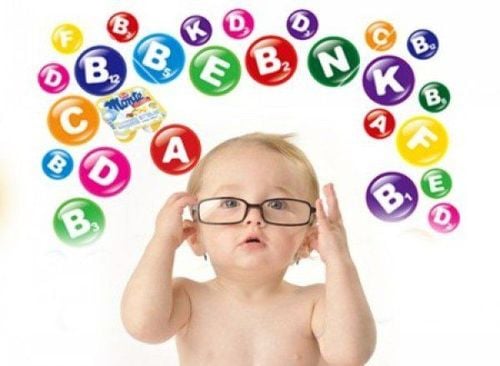This is an automatically translated article.
Recognizing children's talents from an early age is important for all parents. This will help guide your child's learning methods and future success effectively.1. Pros and cons of gifted children
Giftedness is seen as an ability that a child is proficient in and that makes him or her stand out in that area over other children his age. Some experts believe that, right from birth, giftedness is associated with children. But there are also views that assert that children are completely gifted if they practice hard and often.Only 3-5% of children show their talents when they reach adulthood. Parents should try to observe to recognize the child's giftedness as soon as possible, otherwise, they will miss the potential development stage right from childhood.
Children who are gifted in learning often promote self-study in the classroom. With interest in learning, children can learn faster than children of the same age. Children who are gifted in learning often easily achieve good academic results.
Children have the ability to evaluate and comment on information related to the field they learn. In addition, children actively seek help from parents and adults to expand their understanding of topics they are interested in and interested in.
Gifted children may achieve more success than their peers, but they may also face many other challenges. For example, a child may achieve good results in school but have some difficulty in classroom activities.
As the parent of an academically gifted child, you can make a difference in the child's outlook on school and later life. Remember - you are your child's advocate and encourager. By keeping a close eye on your child's progress at school and being ready to intervene when needed, you can help ensure that your child's school years are fun and productive.

Năng khiếu được coi là một khả năng mà trẻ thông thạo và khiến con trở nên nổi trội ở lĩnh vực đó so với những đứa trẻ cùng lứa khác
2. Identifying gifted children
According to the National Association for Gifted Children (NAGC), a gifted child demonstrates or has the potential to achieve exceptional achievement in specific subjects, leadership abilities, or creative areas, and art. To develop to their full potential, these children may need special programs beyond what is normally included in the standard curriculum.In the United States, more than 3.2 million children - about 6% of children in kindergarten and all levels of school - have a special gift. Some children develop special gifts before kindergarten - such as having language abilities, early reading, or showing a particular interest in numbers. Others do not show any signs of giftedness until they enter elementary school.
For example, Lisa Perry Hellerstein, of Larchmont, New York, didn't know her son Ben was gifted until she started first grade. That year, her son was far ahead of his peers when it came to performing some academic tasks in the classroom.
If you or the teacher think your child is gifted, it is advisable to take the child to specialists for tests. A child who scores 130 or higher on an IQ test is considered gifted.
Today aptitude is not determined by a single test. Children will have to go through a series of tests that are interpreted with observation by parents and teachers.
However, giftedness is not a ticket to a child's easy academic success. According to peter Rosenstein, executive director of the NAGC, identifying a gifted child in school is one way to recognize that this child needs a special education program.

Nếu bạn hoặc giáo viên cho rằng trẻ có năng khiếu, nên đưa trẻ đến các chuyên gia để được thực hiện các bài kiểm tra
3. What should schools do for gifted children?
People often assume that gifted children do very well in school. The reality is that many such children find it boring, and if the curriculum is too easy, children sometimes fail to keep up and become unproductive. Or even the child may be depressed.Some children are even diagnosed with hyperactivity because their restlessness leads to behavior problems. Children are also likely to have social problems. Because they have different interests from their peers, they often feel alienated from their classmates and can become the target of teasing by their peers.
4. What can you do when your child is gifted?
If you know that your child is gifted, talk to your child's teacher, school counselor, and principal. But before meeting, find out all you observe about your child's abilities, including what tests your child took and how he performed them.That way, you can discuss the child's strengths and weaknesses in detail. You will also need to find out about the programs available to gifted children both at school and outside.

Một số trẻ năng khiếu có thể cảm thấy nhàm chán, thậm chí là trầm cảm, do không hòa hợp được với các bạn và chương trình học trên lớp
The most important thing is to let your child develop his brain and develop comprehensively, not just focus all his efforts on his talent. Rationalize your own expectations and don't treat your child like an adult.
Article referenced source: Babycenter.com













